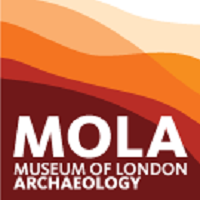AHRC Collaborative Doctoral Partnership PhD with MOLA and Durham University Towards an Archaeology of the Welfare State (1945-79)

Summary
Through our Collaborative Doctoral Partnership, MOLA aims to develop future leaders, specialists and advocates for archaeology, as well as extend our strong record for academic collaboration and engagement. This fully-funded PhD will be supervised by Durham University’s Dr David Petts and Dr Rui Gomes Coelho, with Dr Emma Dwyer and Brigid Geist at MOLA.
The Welfare State between the end of WWII and the rise of Margaret Thatcher marked a high point for direct, proactive government intervention in the social welfare (employment; education; health) of the population of Britain. This resulted in major interventions in urban and rural landscapes through the construction of social housing, schools, hospitals and other welfare provision. However, much of this infrastructure has now reached the end of its use life and is being demolished or transformed through major renovation. What was once the cutting edge of modernity is now becoming the threatened relics of a past society. Towards an Archaeology of the Welfare State (1945-79) aims to explore the landscapes and buildings of the Welfare State, using London as a case study. Exploring similarities in approaches to the use and articulation of space and deployment of materials, and the interaction of built and open space, it hopes to identify distinctive historical landscapes that can be associated with the Welfare State.
Research questions include:
- How are the principles of state modernity spatialized across a range of different forms of built space? And can the same principles be seen to be applied across a range of different Welfare State construction programmes?
- How did the day-to-day use and engagement with the built space serve to adapt, enhance and confront the visions laid out by the architects and designers? And at what scale did such adaptations take place: formal extension/refurbishment? Ad hoc re-working of built space?
- How can the research and social value of buildings constructed as part of the Welfare State be captured and articulated in a contemporary heritage management context?
- How can recording briefs and WSIs be better designed to capture key aspects of the use of built and unbuilt space in complex 20th century construction schemes?
We encourage the widest range of applicants for this studentship, and particularly welcome applications from Black, Asian, and Minority Ethnic backgrounds as they are underrepresented in doctoral research. Applicants should have a master’s degree in a relevant subject or equivalent experience in a professional setting.
The award pays tuition fees up to the value of the full-time home UKRI rate for PhD degrees. The UKRI Fee Level for 2022/23 is £4,596. This studentship is open to both Home and International applicants. If you are an International fee-paying candidate and are awarded the studentship, you need to ensure that you can fund the difference between UK and International fees.
The studentship includes a stipend of £16,062/year (2022/23 rate) plus an allowance of £1000/year to recognise the additional costs of working with a London-based organisation, and a Collaborative Doctoral Award maintenance payment of £550/year. The student can also claim research-related expenses of up to £1000/year from MOLA.
Application deadline: 17 June 2022. Interviews will take place in early/mid-July and the studentship will start 1 October 2022. Further information about the studentship, entry requirements and application process are available on the Durham University website. Please contact Dr David Petts (d.a.petts@durham.ac.uk) or Dr Emma Dwyer (edwyer@mola.org.uk) with further questions.
 MOLA is a CIfA Registered Organisation
MOLA is a CIfA Registered Organisation

